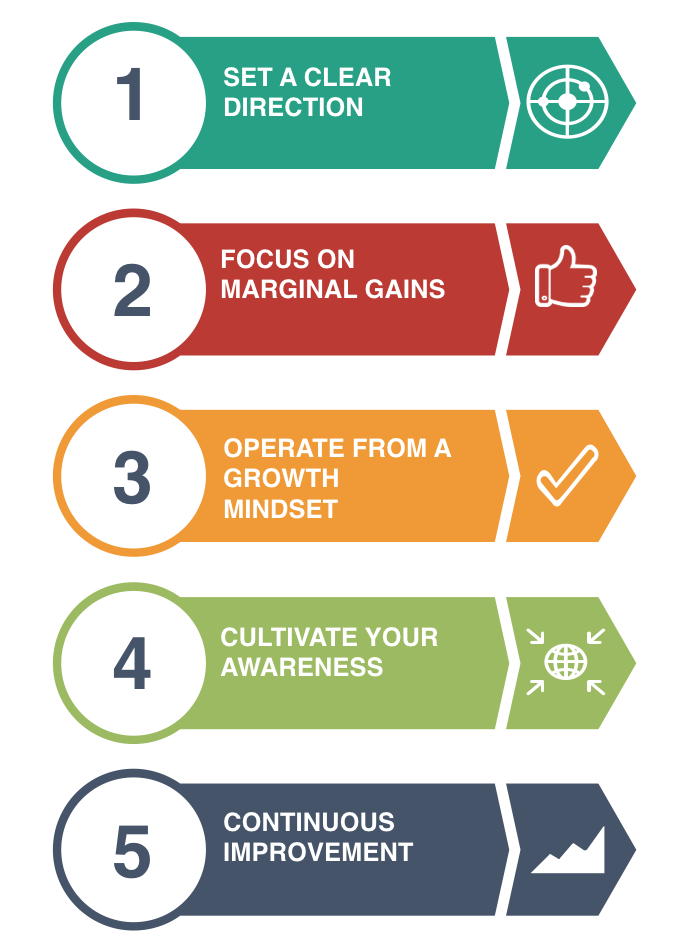
In This Episode…
I have been developing my productivity skills and habits within a framework that’s working really well for me right now. It is a framework that instills specific productive behaviours for the long term. In this episode I give a sneak preview of what that is.
Episode Show Notes…
01:05 – I’ve developed my own Productivity Improvement Operating System to instil new productive behaviours into my repertoire.
01:35 – In summary the system has five components:
- Set a clear direction.
- Focus on marginal gains
- Operate with a Growth Mindset
- Develop your awareness (of whether it is working)
- Adopt an approach of continuous improvement

02:04 – Setting a clear direction is really important and the case for it is made really well in Heidi Grant Halvorson’s excellent book “9 Things Successful People Do Differently” I reviewed in episode 41. In it she outlines a step by step process for getting clarity:
- 02:33 – Step 1- Decide on the general area of improvement
- 02:58 – Step 2 – Set a very specific goal to narrow down your improvement
- 03:31 – Step 3 – Identify the obstacles between you and the goal you are looking to achieve. This develops realistic optimism.
- 04:43 – Step 4 – Use mental contrasting – compare where you want to be with where you are now. This creates the necessity to act.
- 05:18 – Step 5 – Use the IF-THEN approach to create your implementation intention. (See my episode on how IF-THEN Planning has worked for me)
- 06:30 – Step 6 – Write out and use a positive affirmation to shift your identity to someone who adopts this behavioural change routinely and naturally.
- 07:03 – Step 7 – Get clear on what “DONE” and “DOING” look like
07:53 – Marginal Gains is the second stage of the Productivity Improvement Operating System (PIOS). This came out of the work done by the Team GB Olympic Cycling Team.
09:09 – Don’t make BIG changes, start with small shifts that are manageable and believable.
09:56 – The third stage in the PIOS is operate with a Growth Mindset. This is a term first developed, researched and understood by Dr Carol Dweck. This includes:
- Embracing challenges,
- Persisting through obstacles,
- Seeing criticism as feedback,
- Recognising the importance of effort
- Being inspired by the success of others.
11:19 – Developing awareness is the crucial fourth stage in the PIOS. There are a number of ways to do this:
- 11:28 – Journalling
- 11:54 – Tracking your time
- 12:33 – Compare what you actually achieved/did against your plans
13:13 – The final part of the PIOS is to develop a continuous improvement model. W Edwards Deming transformed the Japanese economy after WWII using the principles of continuous improvement
13:50 – This is about regularly defining what changes you want, taking action to change, seeing whether the changes work and then repeating the process.